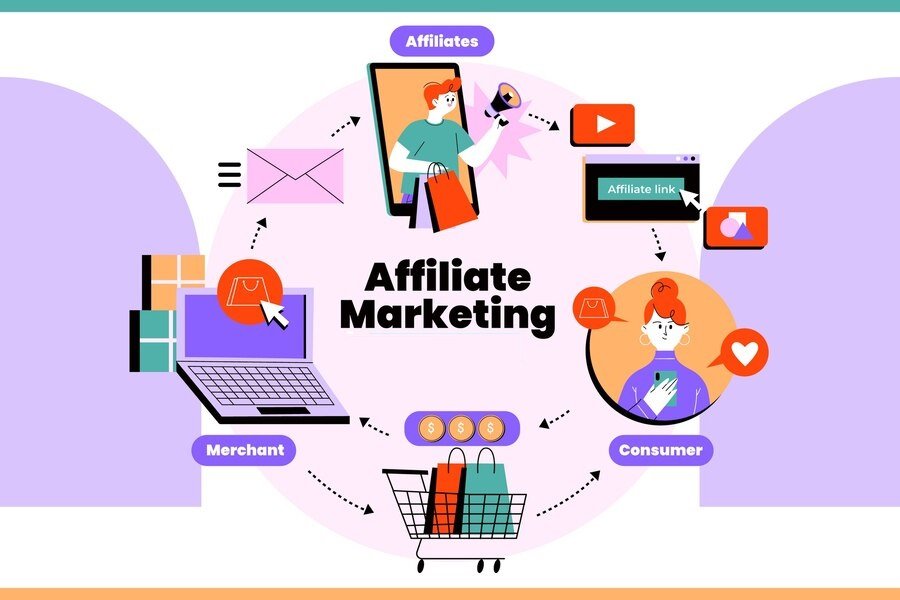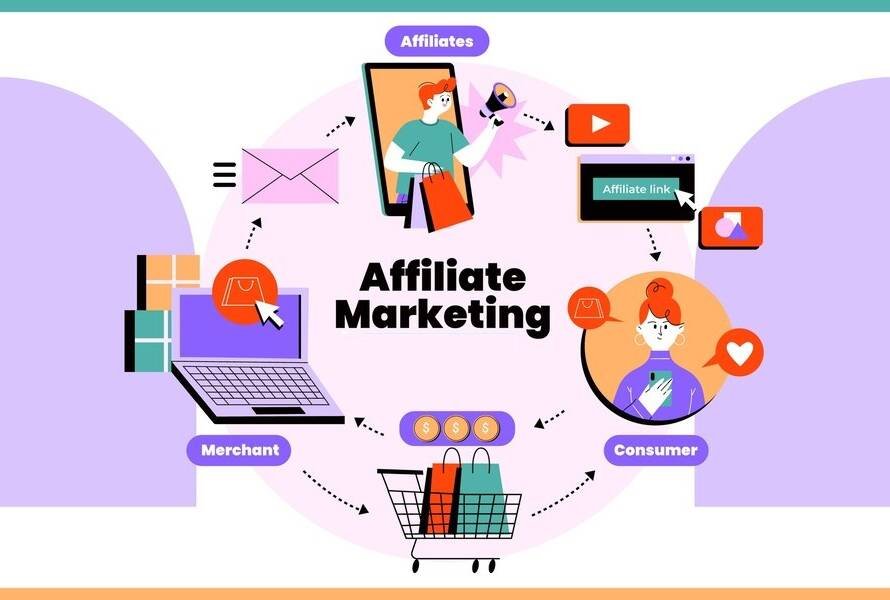The publishing industry is undergoing a significant transformation, driven by advancements in digital technology and innovation. This evolution is particularly pronounced in the realm of affiliate marketing, where publishers are leveraging new tech to optimize their strategies, reach wider audiences, and increase revenue streams. This article explores how publishers are adapting to the digital revolution, highlighting the key technologies and innovations reshaping the affiliate marketing landscape.
Introduction
The digital revolution has fundamentally altered the way content is created, distributed, and consumed. For publishers engaged in affiliate marketing, this transformation presents both challenges and opportunities. Traditional publishing methods are being replaced by digital platforms that offer enhanced capabilities for tracking, targeting, and engaging audiences. As a result, publishers must adapt their strategies to remain competitive in a rapidly evolving market.

The Rise of Digital Publishing
The Shift from Print to Digital
The shift from print to digital has been a game-changer for the publishing industry. Digital platforms offer numerous advantages over traditional print media, including lower distribution costs, greater reach, and the ability to track and measure user engagement in real-time. For affiliate marketers, digital publishing provides an unprecedented opportunity to optimize their campaigns and maximize revenue.
The Role of Content Management Systems (CMS)
Content Management Systems (CMS) have become essential tools for digital publishers. Platforms like WordPress, Joomla, and Drupal allow publishers to create, manage, and distribute content efficiently. These systems also integrate with various plugins and tools that enhance SEO, social media sharing, and affiliate marketing capabilities.
Benefits for Affiliate Marketing
- Enhanced Tracking and Analytics: Digital platforms provide detailed analytics that enable publishers to track user behavior, measure the performance of affiliate links, and optimize content for better conversion rates.
- Improved Targeting: Advanced targeting options allow publishers to segment their audience based on demographics, interests, and behavior, delivering personalized content and offers that increase engagement and conversions.
- Greater Flexibility: Digital publishing allows for rapid updates and changes to content, enabling publishers to respond quickly to market trends and optimize their affiliate marketing strategies.
Leveraging Social Media
The Power of Social Platforms
Social media platforms have become vital channels for publishers to reach and engage their audience. Platforms like Facebook, Instagram, Twitter, and LinkedIn offer powerful tools for content distribution, audience targeting, and engagement.
Social Media Strategies for Affiliate Marketing
- Content Sharing: Sharing high-quality content on social media can drive traffic to a publisher’s website, where affiliate links can be embedded within relevant articles and blog posts.
- Influencer Collaborations: Partnering with influencers can amplify a publisher’s reach and credibility, leading to higher engagement and conversions for affiliate campaigns.
- Paid Advertising: Social media advertising allows publishers to target specific audience segments with precision, promoting affiliate products and services directly to users who are most likely to convert.
Harnessing SEO and Content Marketing
The Importance of SEO
Search Engine Optimization (SEO) is crucial for driving organic traffic to a publisher’s website. By optimizing content for search engines, publishers can increase their visibility and attract a larger audience, which is essential for successful affiliate marketing.
SEO Best Practices for Affiliate Marketing
- Keyword Research: Identifying and targeting relevant keywords can help publishers attract users who are actively searching for information related to their affiliate products.
- Quality Content: Creating high-quality, informative, and engaging content can improve search engine rankings and encourage users to spend more time on the website.
- On-Page Optimization: Optimizing on-page elements such as meta tags, headings, and images can enhance the visibility and readability of content.
Content Marketing Strategies
- Product Reviews and Comparisons: Detailed product reviews and comparison articles can provide valuable information to readers, encouraging them to click on affiliate links and make purchases.
- How-To Guides and Tutorials: Educational content that helps users solve problems or learn new skills can attract a dedicated audience and drive affiliate conversions.
- Listicles and Round-Ups: Articles that compile lists of top products or services in a particular niche can generate significant traffic and affiliate revenue.
Utilizing Data and Analytics
The Role of Data in Affiliate Marketing
Data and analytics play a critical role in optimizing affiliate marketing strategies. By analyzing user behavior, traffic sources, and conversion rates, publishers can make informed decisions that improve the effectiveness of their campaigns.
Key Metrics to Monitor
- Click-Through Rate (CTR): The percentage of users who click on an affiliate link compared to the total number of users who view the link.
- Conversion Rate: The percentage of users who complete a desired action, such as making a purchase, after clicking on an affiliate link.
- Average Order Value (AOV): The average amount spent by users who make a purchase through an affiliate link.
Tools for Data Analysis
- Google Analytics: A comprehensive tool for tracking website traffic, user behavior, and conversions.
- Affiliate Networks: Platforms like ShareASale, CJ Affiliate, and Amazon Associates provide detailed reports on clicks, conversions, and earnings.
- Heatmaps and User Recordings: Tools like Hotjar and Crazy Egg help publishers understand how users interact with their website, identifying areas for improvement.
Embracing Emerging Technologies
Artificial Intelligence (AI) and Machine Learning
AI and machine learning are revolutionizing affiliate marketing by enabling publishers to automate and optimize their strategies.
Applications in Affiliate Marketing
- Personalization: AI can analyze user data to deliver personalized content and recommendations, increasing the likelihood of conversions.
- Predictive Analytics: Machine learning algorithms can predict user behavior and trends, allowing publishers to proactively adjust their strategies.
- Chatbots and Virtual Assistants: These tools can engage users in real-time, providing information and assistance that can drive affiliate conversions.
Blockchain Technology
Blockchain technology offers new possibilities for transparency and security in affiliate marketing.
Applications in Affiliate Marketing
- Transparent Tracking: Blockchain can provide a transparent and immutable record of affiliate transactions, reducing fraud and disputes.
- Smart Contracts: Automated contracts that execute when predefined conditions are met can streamline payments and ensure timely compensation for publishers.
Enhancing User Experience
The Importance of User Experience (UX)
A positive user experience is essential for retaining visitors and driving conversions. Publishers must prioritize UX to ensure that users can easily navigate their site and find the information they need.
UX Best Practices
- Responsive Design: Ensure that your website is mobile-friendly and adapts to different screen sizes.
- Fast Load Times: Optimize your site’s performance to reduce load times, as slow websites can lead to higher bounce rates.
- Intuitive Navigation: Make it easy for users to find content and affiliate links by organizing your site logically and using clear calls-to-action.
Building Trust and Credibility
The Role of Trust in Affiliate Marketing
Trust is a crucial factor in affiliate marketing success. Users are more likely to click on affiliate links and make purchases if they trust the publisher and believe in the authenticity of the recommendations.
Strategies for Building Trust
- Transparency: Disclose affiliate relationships and be transparent about how you earn commissions. This builds credibility and ensures compliance with regulations.
- Authenticity: Provide honest and unbiased reviews. Avoid promoting products solely for commissions, as this can damage your reputation.
- Engagement: Engage with your audience through comments, social media, and email newsletters. Building a community fosters trust and loyalty.
Conclusion
The digital revolution has ushered in a new era for publishers in the affiliate marketing space. By embracing new technologies and innovations, publishers can optimize their strategies, reach wider audiences, and increase their revenue streams. From leveraging social media and SEO to utilizing data analytics and emerging technologies, the opportunities for growth and success are vast. By prioritizing user experience and building trust, publishers can navigate the digital landscape and thrive in the competitive world of affiliate marketing. As the industry continues to evolve, staying adaptable and innovative will be key to maintaining a competitive edge and achieving long-term success.
Welcome to SEM Spartans, where knowledge is power, and the possibilities are endless. Our mission is to educate, inspire, and empower our readers to become digital savvy marketers. Whether you’re a business owner looking to expand your online presence, a marketing professional seeking to enhance your skills, or an aspiring entrepreneur eager to learn the ropes of digital marketing, SEM Spartans is your trusted digital blog platform.


